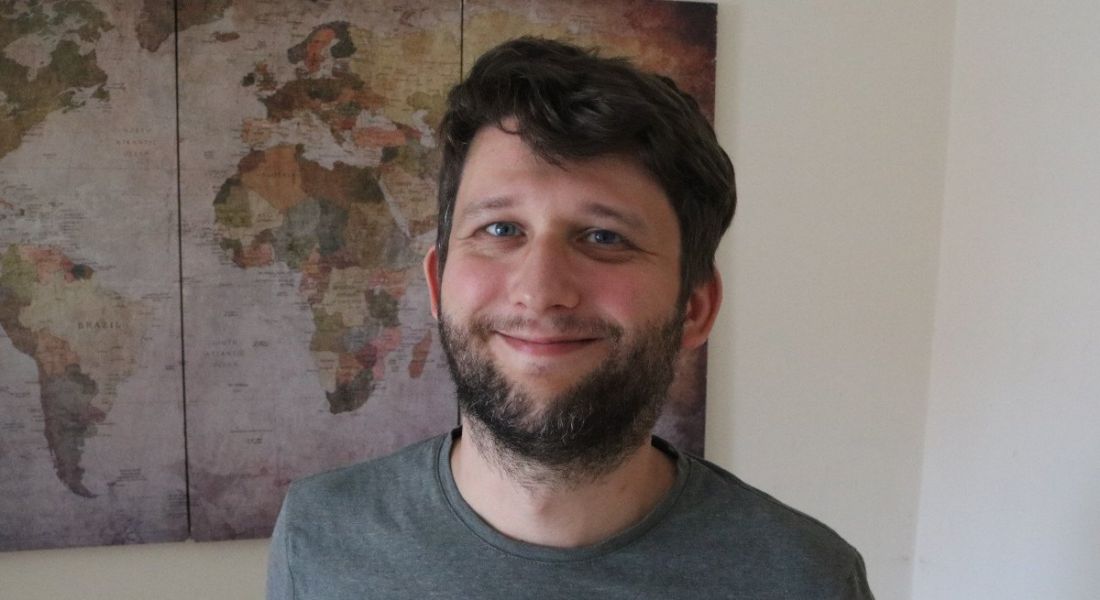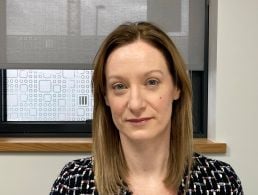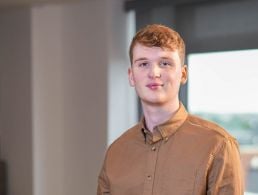Yahoo’s Robert Soldan talks to SiliconRepublic.com about his internship at Yahoo and how it prepared him for working life as a software engineer.
Robert Soldan describes himself as passionate about learning about “pretty much everything”, especially technology and software. It was this passion that inspired him to enrol into a science of computing degree in 2018, after being self-taught in the field of software development for a number of years.
In February 2021, Soldan began a six-month internship at Yahoo. He was drawn to Yahoo because of its established standing in the industry and the details of the internship, which he felt was tailored to his desires and experience.
Soldan states that he had few expectations prior to starting the internship, other than “learning as much as I can in the time I had with the company”.
Since completing the internship, Soldan has remained at Yahoo and now holds a position of software dev engineer.
Can you describe a typical day in your role?
I try to keep a consistent schedule for my work days in order to keep track of my work and ensure consistency.
My morning usually starts by going through my emails. I review work and activities from the previous day and add tasks to my daily to-do list.
After that, I start writing code on my current task and get some work done before my team’s daily stand-up meeting, which is just before noon. These meetings are under 15 minutes, the main purpose being to present progress and raise any issues or blockers which team members might face.
After the meeting, I get back to coding-related work. In the meantime, I also participate in code reviews for my team members. Since we are all working on the same side of a project, working together with my teammates in figuring out solutions is a daily activity. This is done via Slack, since we are in different geographical locations.
‘Six months of internship taught me more than almost two years of freelancing’
Documentation is also a large part of writing code, so I try to take notes as I go along. This helps with finding solutions more quickly and will also help later when writing official documentation, which will be shared as part of my work.
Towards the end of the day, I prepare my to-do list for the next day, ticking off things which were completed today and uncompleted tasks get moved over to the next day.
This is just a basic representation of a typical day. The ‘writing code’ part involves reading documentation, trial and error, and also reaching out to colleagues for advice or help. Also, tasks will vary from day to day because different stages of a project might require different types of work to be done.
As for how it compares to my expectations, I can say that the work we do is done with much more care and attention than what I was expecting. Starting off as a developer, one might think that you look at a problem, write a solution for it, deploy and then move on to the next problem. In reality, there are a lot of iterations and testing done in order to reach a final product. On top of that, teamwork, collaboration and communication are key to success.
‘Software development is a collaborative process, communication and teamwork are fundamental to getting anything done’
Did the scope of your work change as the internship progressed?
The internship was set up in a very good way, allowing interns to develop and grow their skills, and providing time to get comfortable with the environment.
There was a constant progression when it comes to the duties we had as interns. We started with an intern-specific project, which allowed us to get to know each other and various company specific systems, while also giving us the time needed to get our local development environments set up.
Later on, we were introduced to a team and presented with team projects. We were assigned to teams based on what we prefer to work in (for me, it was full stack web development). As I started to work on a live project, I was given tasks which were progressively more challenging, allowing me to learn from working. At every step, I had all the help I needed from much more experienced colleagues.
What key things have you learned during this internship?
The main thing I learned is that software development is a collaborative process first, so communication and teamwork are fundamental to getting anything done. On the technical side, I can comfortably say that six months of internship have taught me more than almost two years of freelancing, mostly due to the diversity of activities we’ve had during the internship.
Did this internship make you feel as though you were on the right career path?
Considering that I am a mature student and started to pursue this path a bit later in life than most, I was already pretty sure that this is the career path I want. But the internship definitely confirmed that belief, shown by the fact that I have remained with Yahoo after the internship, on the same career track.
How has your internship made you feel more prepared for working life?
The internship set us up for working in a professional environment. We were introduced to working on a live project pretty early on in the internship and had been carefully guided in following all the necessary steps in order to provide useful contributions to the project. So, we ended the internship not only feeling prepared for working in the field but also having made meaningful contributions.
What are the things about Yahoo that you would recommend to others looking for an internship?
There are three main things that I would recommend to people looking for an internship at Yahoo: professionalism, opportunities to learn and work-life balance. At every step of the experience, I have been met with professionalism by all my colleagues and treated as a peer. Everyone was helpful and supportive in providing advice and help when going through the learning process, be it technical aspects or day-to-day work-related things. All of this was introduced to me gradually, ensuring that there was no pressure felt at any time, making it a great place to work and learn.
10 things you need to know direct to your inbox every weekday. Sign up for the Daily Brief, Silicon Republic’s digest of essential sci-tech news.








